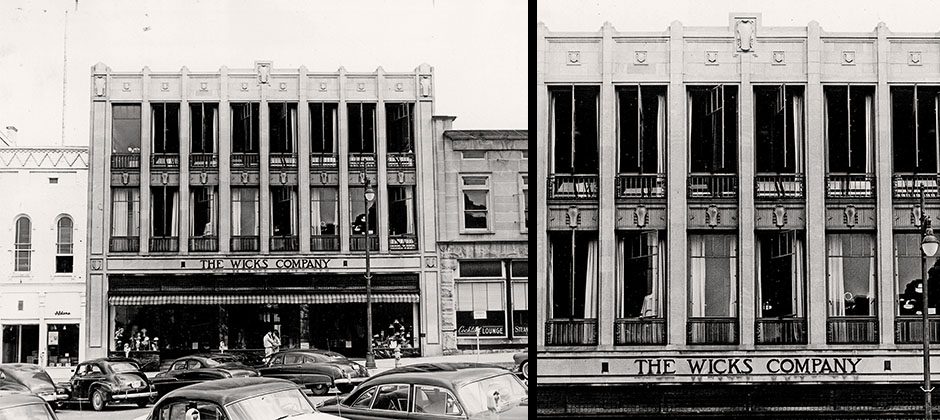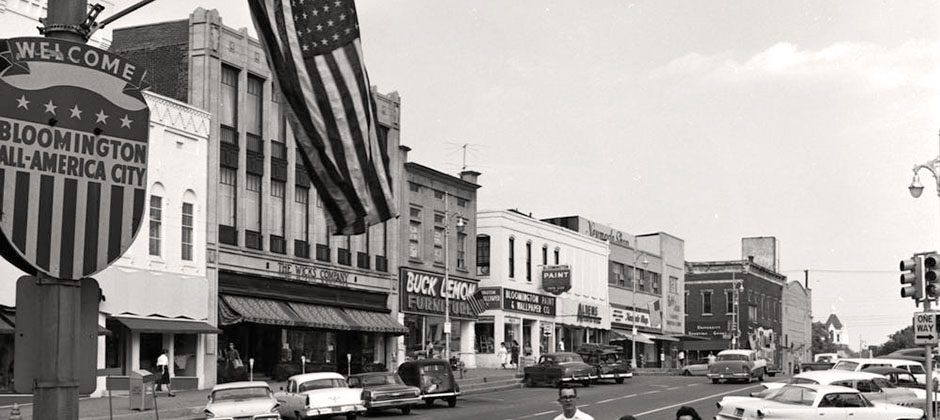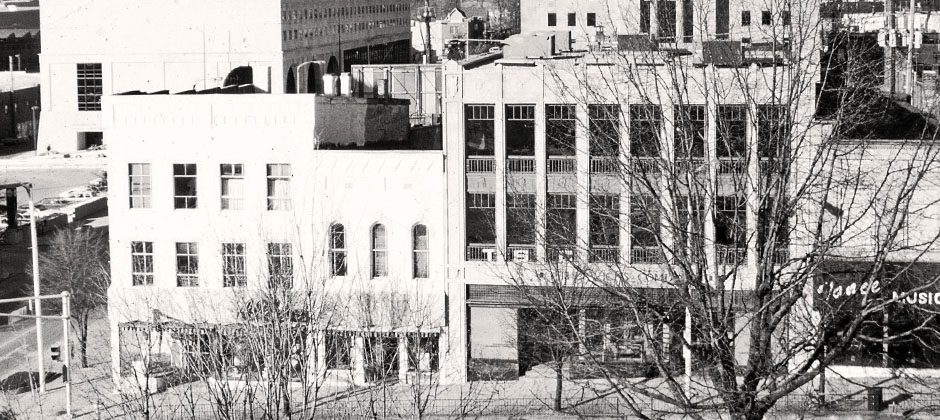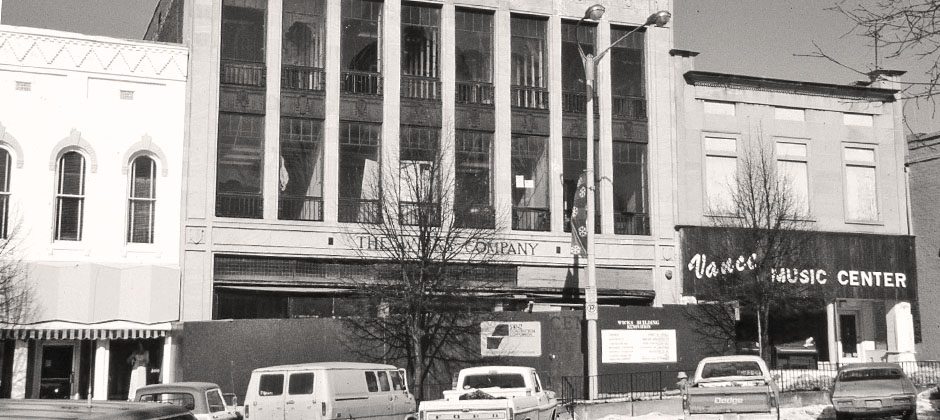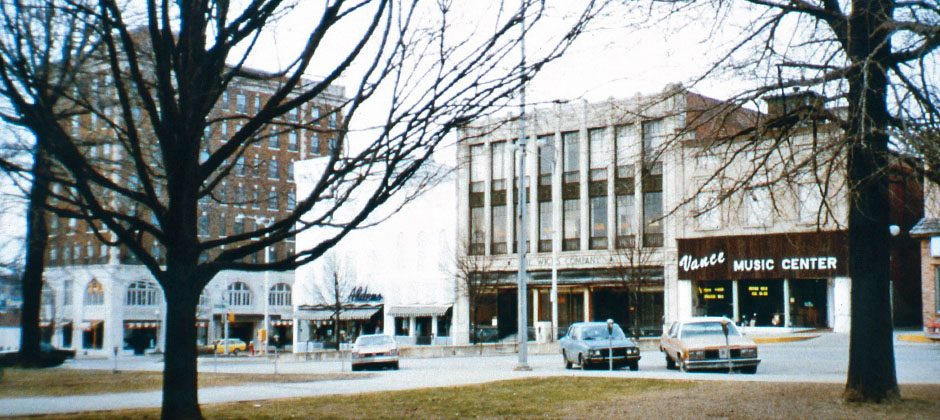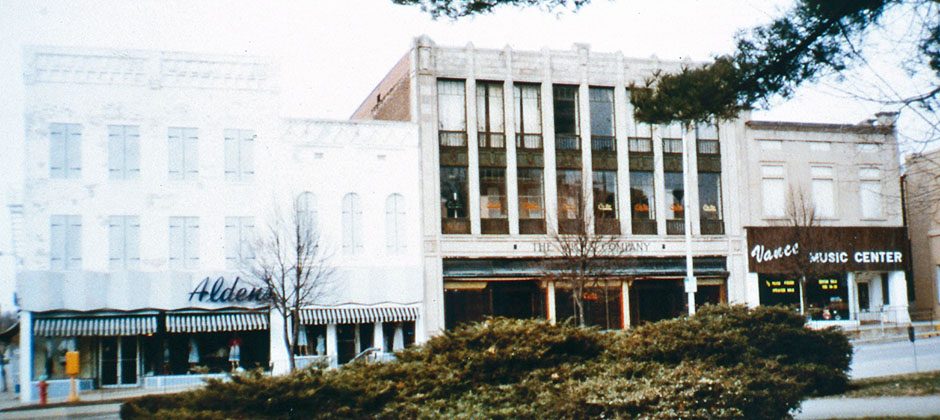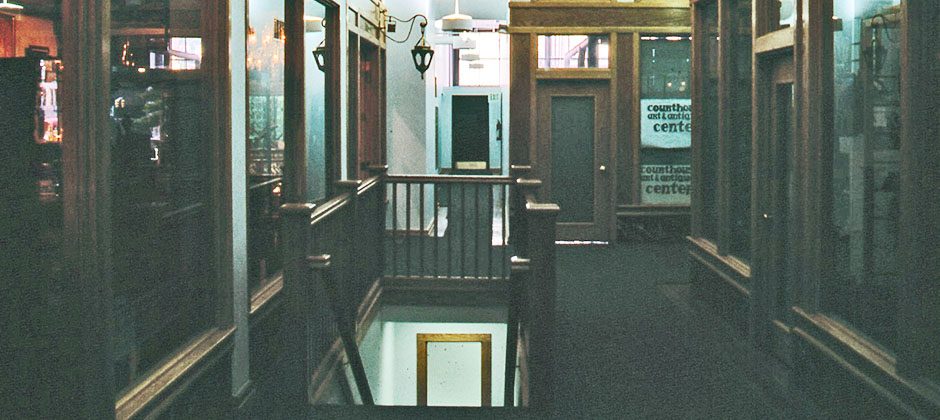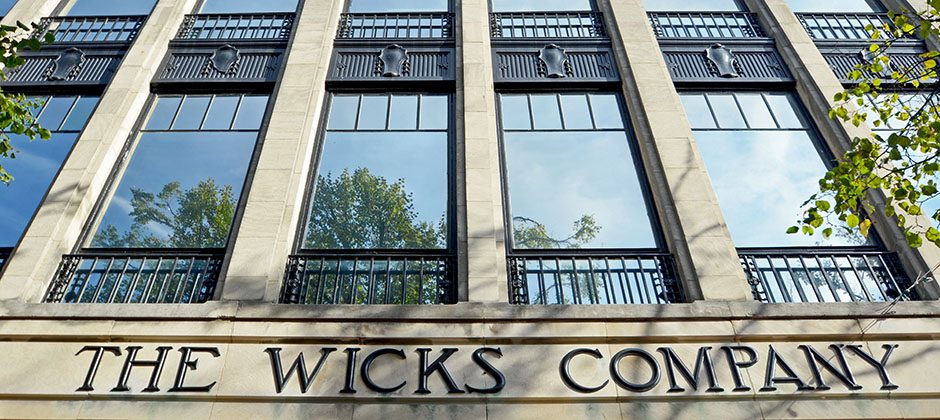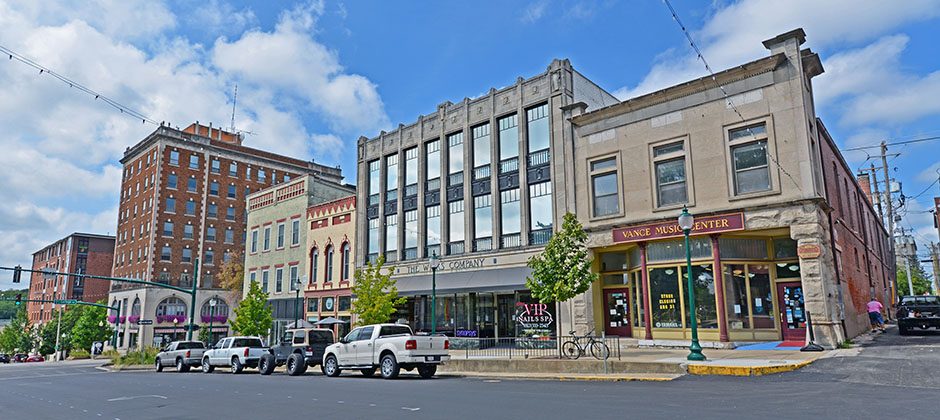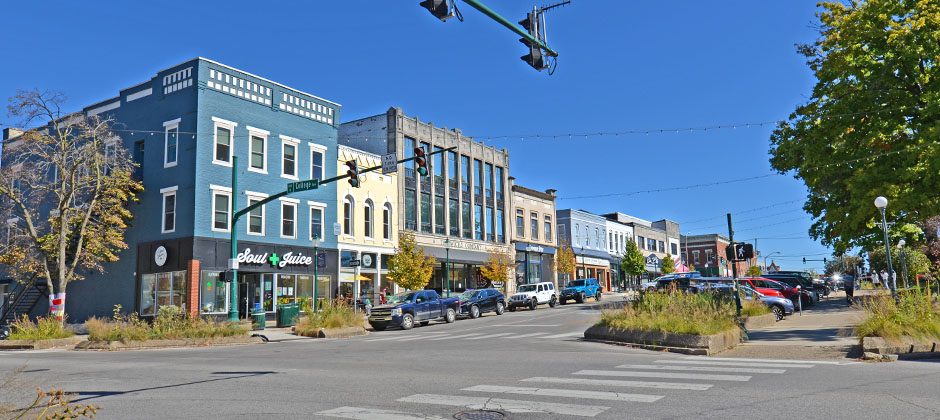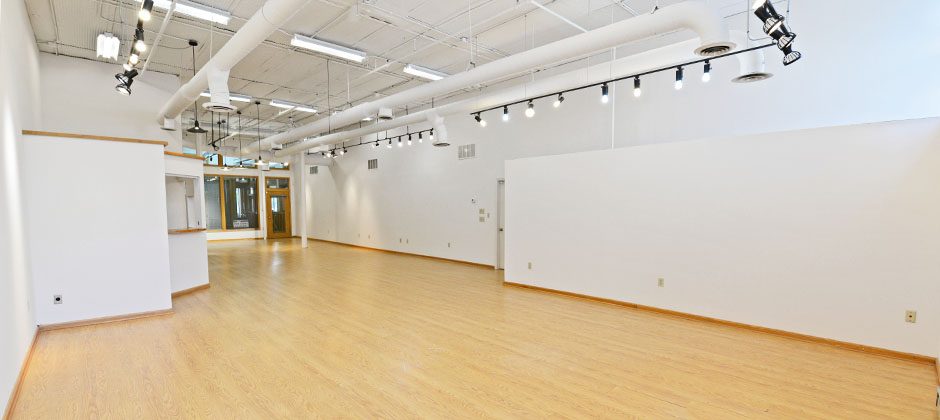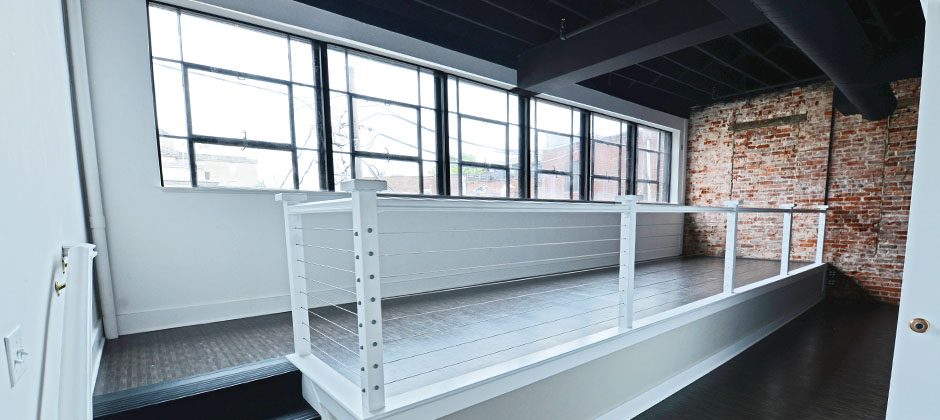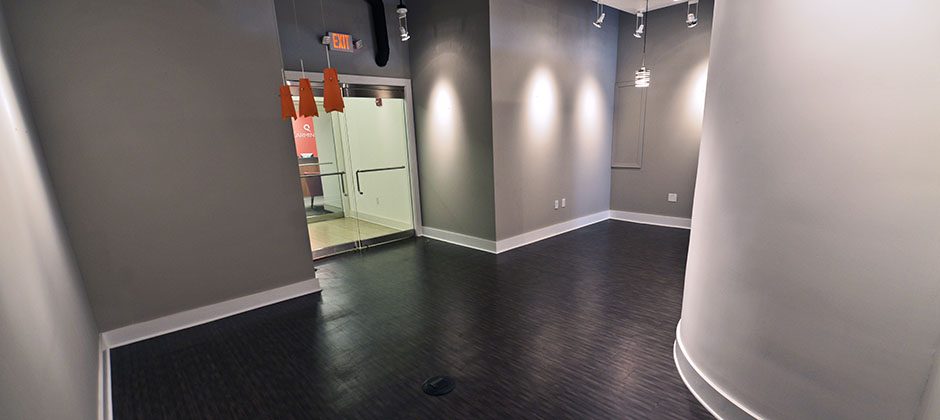The first Wicks Bee Hive department store was built in 1891 by a veteran of the Civil War, Colonel Wyatt W. Wicks, a Bloomington businessman who owned one of the area’s economically dominant limestone quarries. Following a fire that destroyed the building in 1915, Colonel Wyatt purchased the building at 116 West 6th Street (today referred to as the Wicks Building) and started one of Bloomington’s first department stores called The Wicks Company.
Wyatt gutted and remodeled the store in 1925 and added the Chicago School limestone façade. Interestingly, most buildings of the Chicago School architectural style are significantly taller than the three stories. However, the placement and size of the windows, roofline, and general building plan are represented, respectively.
Cast ironwork ornamental details grace the building’s exterior, along with 16 large windows that feature five pieces of glass; one large glass panel and four smaller panels. Additional details are visible in the peaks of the roofline.
In 1977, Wicks Partnership purchased the building to serve as office space, and they later remodeled it in 1984. CFC Properties, a real estate development and property management company, purchased the building in 1995 and made additional renovations, including adding Bloomington’s first elevator and a central staircase that would allow access to the lower level.
In 1983, the Wicks Building was listed in the National Register of Historic Places due to its distinctive historic architecture. No other buildings in Bloomington were built using the Chicago School architectural style. The building also has a rare degree of preservation. Although its stonework has slightly deteriorated over the years, it has remained structurally sound, and there have been few changes to the exterior since its construction.
In an effort to boost the downtown economy, a fresh coat of black paint was added to the ironwork on the façade. In addition, the 2nd and 3rd floors underwent major renovations contracted by Pritchett Bros, a Bloomington contracting company. The goal was to attract and accommodate tech companies in 2014.
President of CFC Properties, Jim Murphy, commented in a Herald-Times newspaper article…
“It wasn’t marketable in its existing condition.”
The traditional office spaces were modernized, bringing them into the 21st century. CFC worked with Cigital, a Tech Security Company, Carmin Parker, Law Firm, and Richardson Studio, Photography Services, to customize build-outs to their needs.
Jim added…
“We achieved our goal of creating the best, most unique offices in downtown Bloomington… we’re ecstatic we have the new tenants that we do… It’s a good indicator that downtown Bloomington is viable and a great place to be.”

